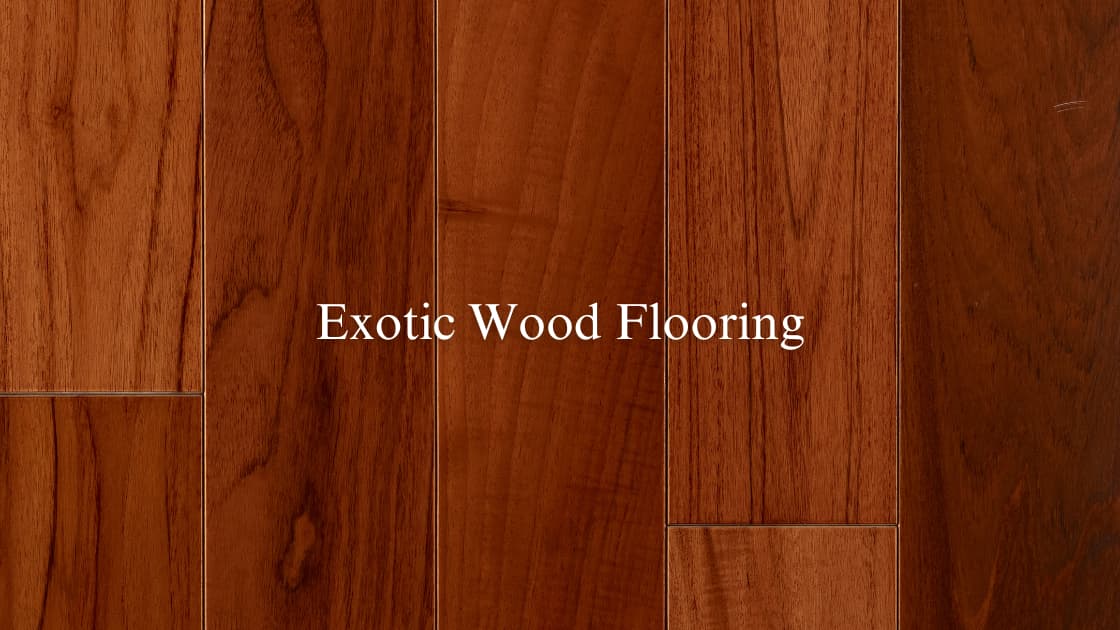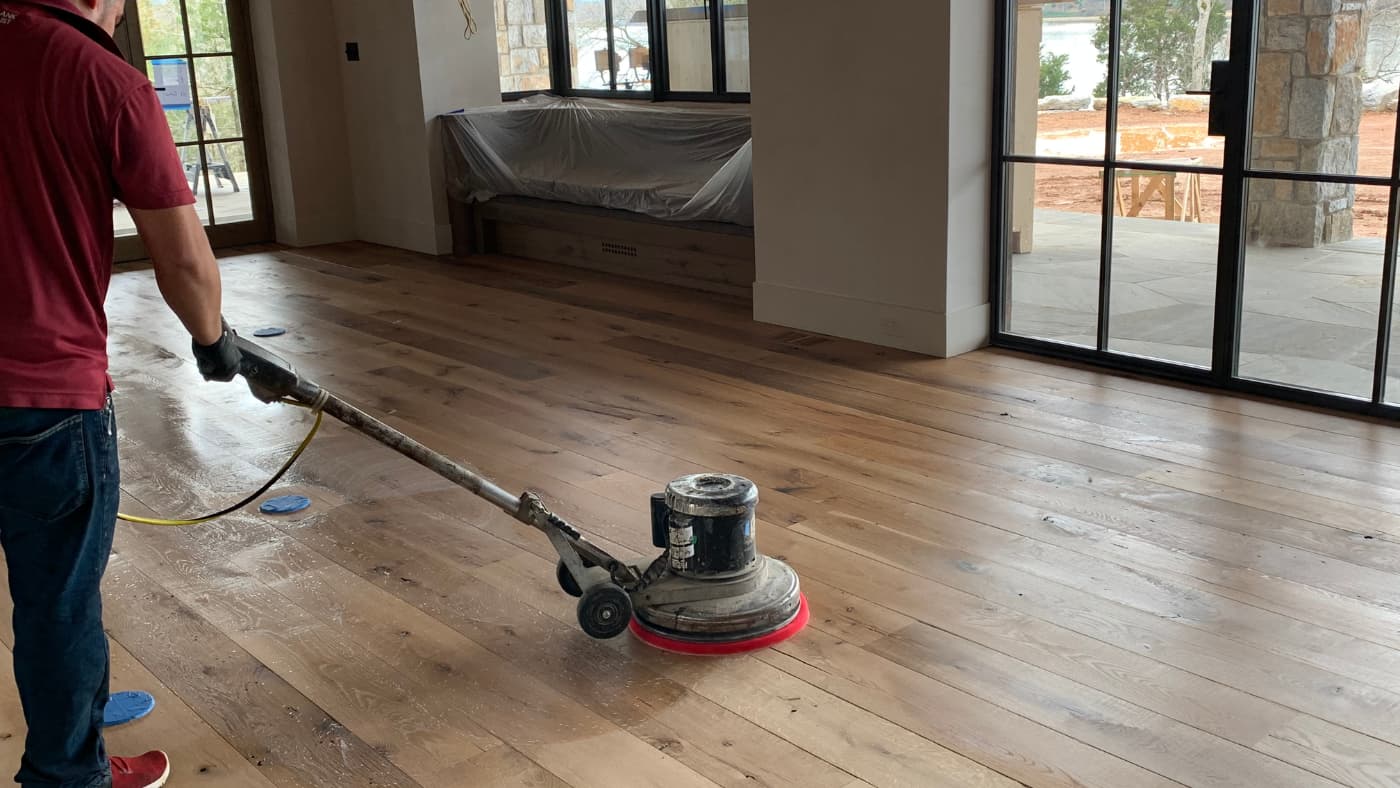How Hardwood Floors Enhance Acoustics in Open-Concept Living Spaces
In the world of interior design, open-concept living spaces have gained immense popularity for their fluidity and versatility. However, with these expansive layouts comes the challenge of managing sound and acoustics. Enter hardwood flooring – not only celebrated for its timeless beauty, but also increasingly recognized for its ability to contribute to better acoustics in a room. In this article, we’ll delve into how hardwood floors can reduce noise and improve sound quality, especially in open-concept living spaces.
The Acoustic Power of Hardwood Flooring
Hardwood floors are more than just a visual delight; they possess remarkable acoustic qualities that can greatly enhance the atmosphere of a room. The key lies in the dense and solid nature of hardwood material. When properly installed and maintained, hardwood floors can act as a natural sound barrier, helping to minimize sound transmission between rooms and levels of a home.
1. Sound Absorption and Reflection
In open-concept living spaces, sounds tend to bounce off walls and other hard surfaces, creating an environment with high sound reflections. Hardwood floors, with their solid and firm surface, can help break this cycle. Unlike surfaces that reflect sound, hardwood floors are capable of absorbing some of the sound energy, reducing the overall echo and reverberation in a room. This absorption contributes to a more comfortable and pleasant acoustic environment. This is especially true if you choose a finish like European Oil.
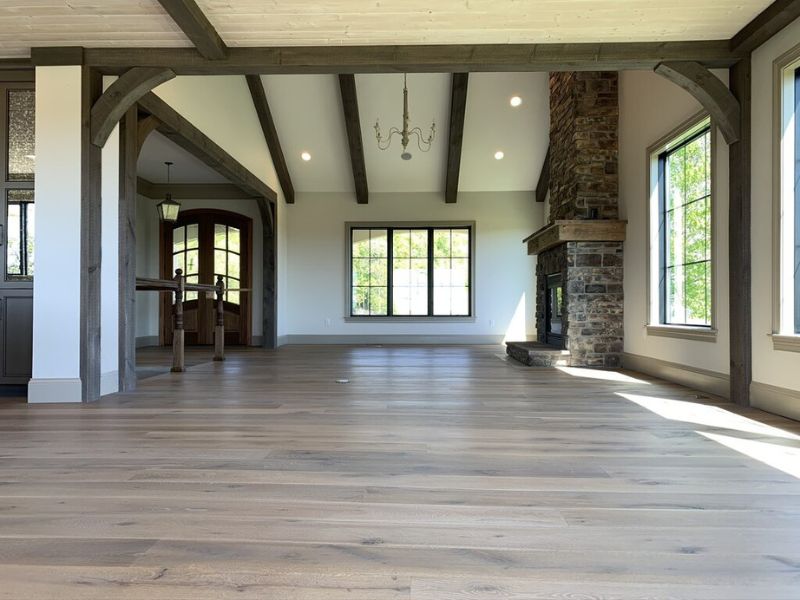
2. Noise Reduction and Transmission
Hardwood floors also play a pivotal role in reducing noise transmission between floors and rooms. Their dense composition helps to muffle footsteps, conversations, and other sounds that might otherwise travel between different areas of the home. This is especially important in open-concept living spaces, where one area flows seamlessly into another without the presence of walls or doors to block sound.
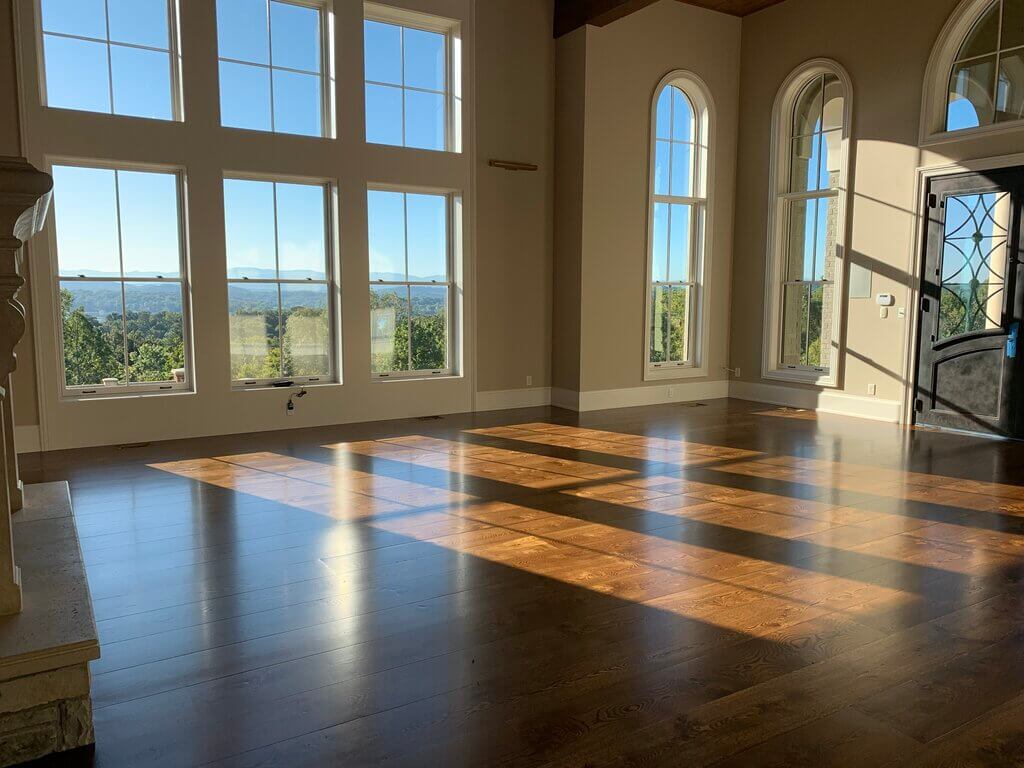
3. Enhancing Sound Quality
Beyond noise reduction, hardwood floors can significantly improve the quality of sound within a room. When sound waves interact with soft surfaces, such as carpets or curtains, they can become absorbed or distorted. Hardwood floors, on the other hand, offer a balanced middle ground. They allow sound waves to bounce gently, creating a pleasing resonance that contributes to the overall acoustic ambiance of the space.

4. Easy Maintenance for Consistent Acoustics
One of the advantages of hardwood flooring in terms of acoustics is its longevity and ease of maintenance. Other flooring options, like carpets, can lose their acoustic benefits over time as they accumulate dust, dirt, and wear. Hardwood floors, when properly cared for, maintain their acoustic properties for years, ensuring consistent sound quality in your open-concept living spaces.
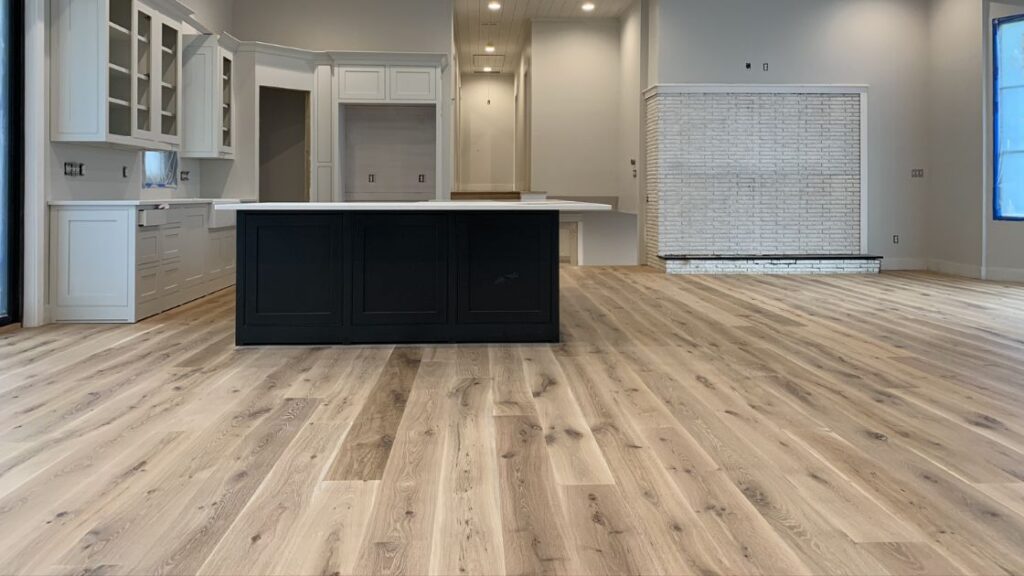
5. Aesthetics and Acoustics in Harmony
Perhaps one of the most compelling reasons to choose hardwood flooring for open-concept spaces is its ability to strike a harmonious balance between aesthetics and acoustics. While other sound-absorbing materials might hinder the visual flow of a room, hardwood floors seamlessly integrate into any design style. From modern to traditional, the elegance of hardwood complements a wide range of interior aesthetics without compromising on acoustic performance.
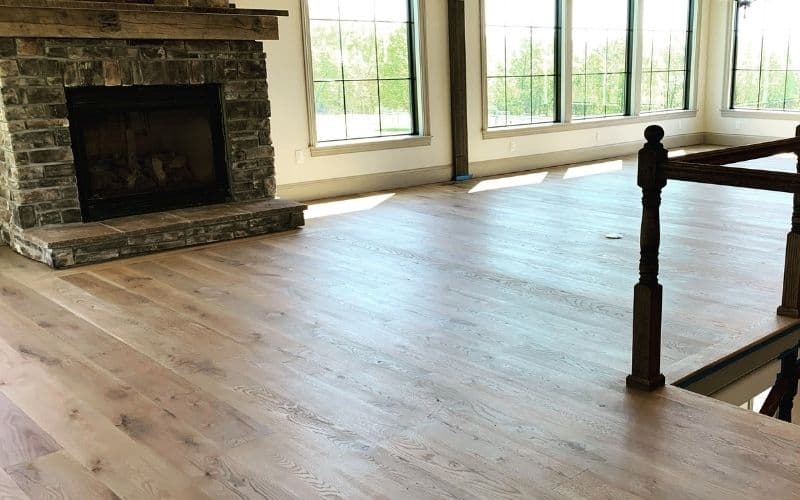
As the heart of a home, open-concept living spaces demand careful consideration of both design and functionality. With hardwood flooring, you can achieve the best of both worlds. Beyond its inherent beauty, hardwood floors possess the remarkable ability to enhance acoustics by reducing noise, absorbing sound energy, and improving overall sound quality. In open-concept living spaces, where sound can easily travel, investing in hardwood flooring is an investment in the auditory harmony of your home. So, embrace the elegance of hardwood floors not only for their visual appeal but also for the acoustic comfort they bring to your living spaces.


